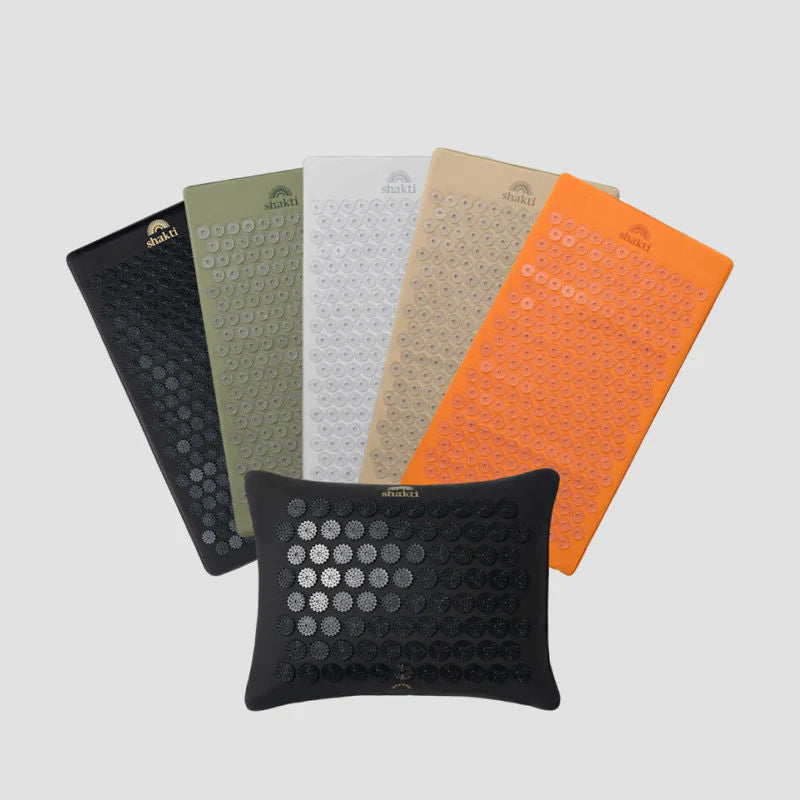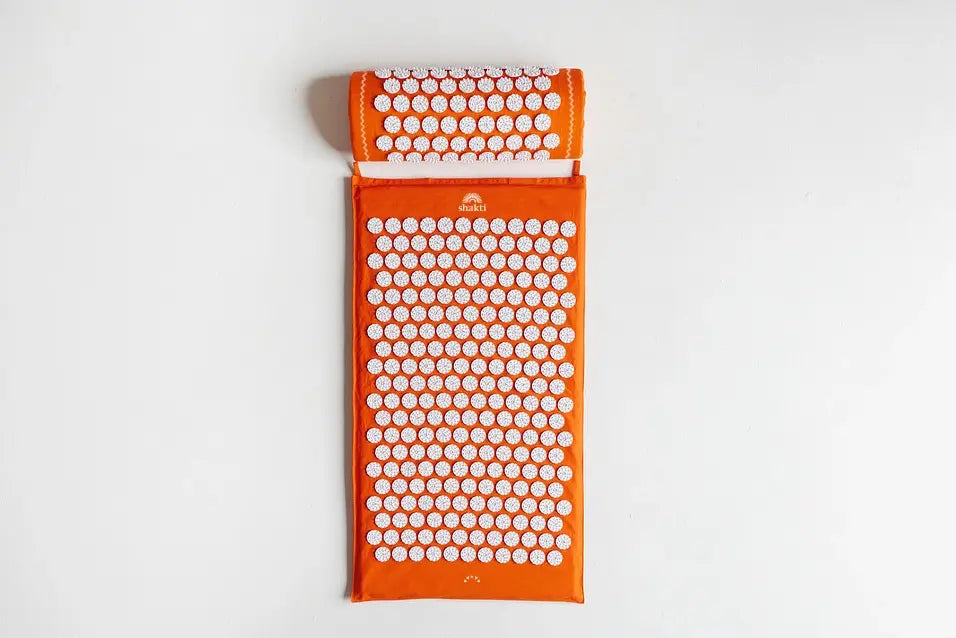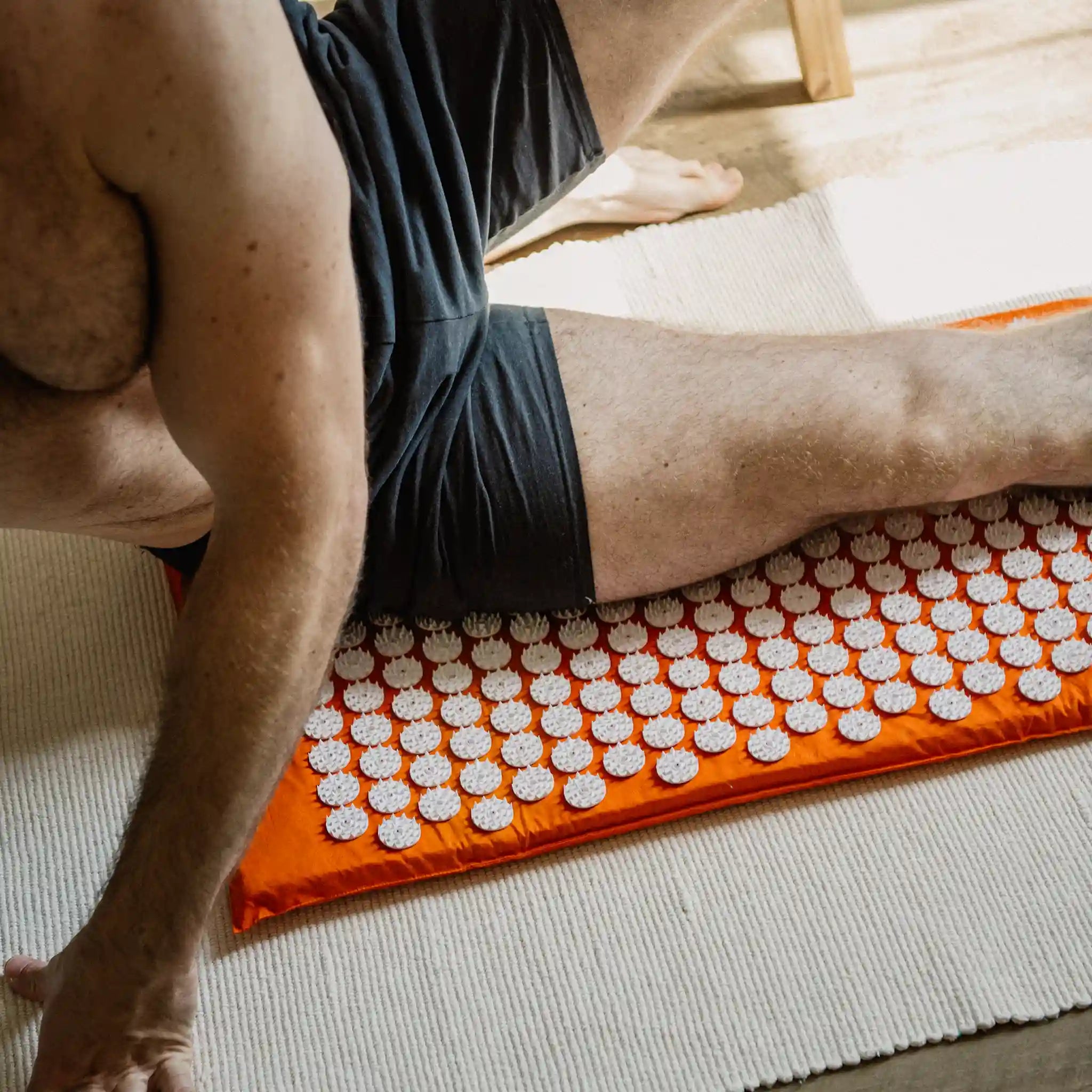You usually only notice how important sleep is for your well-being when you don't get enough of it. Whether it's family conflicts, project pressure or health problems: In modern everyday life, there are many aspects that make it difficult for you to simply close your eyes in the evening and drift off into the realm of dreams. In the long run, however, sleep problems can lead to fatigue, reduced performance or even cardiovascular problems.
Fortunately, there are a number of tried and tested sleep tips that can help you fall asleep faster and sleep through the night. We reveal the most tried-and-tested tips for falling asleep better so that you can start the day fresh and refreshed in the morning.
Content
1. falling asleep and sleeping through the night: what to consider
2 What to do if you can't sleep?
3. tools and aids: What helps you fall asleep?
4. what helps you fall asleep? Home remedies and herbs
5. tips for falling asleep: breathing exercise as a valuable helper
6. insomnia due to external influences
7. good to know: Tips for falling asleep for children aged 10 to 12
8. get a good night's sleep with our tips for falling asleep
Falling asleep and sleeping through the night: what to watch out for
You're lying in bed, tossing and turning - but the rest you were hoping for just won't come? According to studies, around a third of people in Germany are unable to fall asleep. Yet sleep is far more than "just" a break from everyday life and plays a central role in numerous mental and physical processes. While you sleep, your body repairs and regenerates cells, builds muscles and synthesizes proteins. This strengthens the immune system and your body is better able to fight off infections and illnesses.
Sleep also promotes cognitive function and memory: during the deep sleep phase, information is processed and new knowledge is consolidated. Last but not least, sleep naturally also influences your mood and emotional balance.
In addition to fatigue and listlessness, lack of sleep can therefore cause problems with concentration, forgetfulness and mood swings. A weakening of the immune system or an increased risk of chronic heart disease can also be associated with insufficient sleep.
As you can see, it's worth making your night's sleep a priority with our tips for falling asleep!
What to do when you can not sleep?
Oh dear, I can't fall asleep: One immediate remedy in this situation is to stay calm. Putting yourself under pressure and constantly thinking about how many hours are left until the alarm clock rings is rather counterproductive. Maybe you read a few lines in your favorite book or review the positive aspects of the day? If you are still awake after 20 minutes, you should get up briefly, change the room and engage in a relaxing activity, such as a short meditation or breathing exercise. This usually calms your body down and you can go back to bed. If you still can't fall asleep faster with these first aid measures, the following overview with the best tips for falling asleep can help.
From breathing exercises to valerian: how to fall asleep quickly?
Finding restful sleep often depends on your daily habits. Before we give you concrete tips on how to fall asleep, we would like to show you what lifestyle changes you can make to prevent insomnia and improve your sleep quality in the long term.
Choose a constant bedtime
If you go to bed as soon as you feel tired and wake up naturally in the morning without an alarm clock, you will enjoy the most restful sleep. Unfortunately, this scenario is more like a pipe dream. Nevertheless, you should try to establish a consistent sleep rhythm where you go to bed, sleep for 7 to 9 hours and get up at similar times every day - even at the weekend. This will allow your body to adapt and prepare itself optimally for sleep.
Creating a sleep-friendly environment
A dark, quiet bedroom will help you fall asleep faster. Invest in opaque curtains or treat yourself to a pair of cozy sleeping goggles. Also create a cool bedroom with a room temperature of around 18 degrees.
Keep your distance from screens
Devices such as televisions, computers and smartphones emit light with a high blue component, which suggests to your brain that it is daytime. Therefore, switch these devices off about one to two hours before going to bed. If this is not possible, preferably use night mode or an app that filters the blue component.
Making dinner easy
Avoid late and heavy meals. These strain your digestive tract and can interfere with falling asleep and sleeping through the night. A light dinner about four hours before bedtime is ideal. Bananas or oatmeal, for example, contain a lot of magnesium, which relaxes your muscles. And remember: that afternoon espresso can keep you awake for longer than you think. Try to drink your last coffee at lunchtime at the latest.
Move during the day, rest in the evening
Studies show that regular physical activity leads to better sleep. But be careful: intense exercise just before bedtime can actually prevent sleep. Integrate sport into your daily routine, but end the evening quietly, for example with a relaxation exercise.
Tools and aids: What helps to fall asleep?
Looking for tips on how to fall asleep with effective tools? In addition to the general aspects listed above, there are some innovative tools that can help you drift off to dreamland faster. Based on an ancient principle from Traditional Chinese Medicine, an acupressure mat, for example, can help you relax and fall asleep better.
The special mat has hundreds of small spikes that distribute pressure to different points on your body, stimulate your circulation and create a feeling of relaxation. Some people report that 10 to 20 minutes on an acupressure mat before going to bed has a calming effect and helps them to fall asleep. Applying the mat to certain points, for example below the base of the skull (LG16) or on the inner crease of your wrist (H7), can enhance this effect.
So-called "white noise machines" are devices that produce a constant, calming sound and mask disturbing background noise. The frequency ranges are represented in balanced proportions, without rising and falling pitches. This monotonous background noise is said to promote good sleep in both adults and children - which is why it is one of the most popular tips for putting babies to sleep.
By using essential oils, such as lavender or chamomile, aromatherapy diffusers can create a calming atmosphere. The gentle scent of these oils is known to calm the mind and relax the body, which can also help you fall asleep.
Last but not least, weighted blankets are popular tools for falling asleep and staying asleep: They are heavier than regular comforters and exert a gentle, even pressure on your body. This makes them feel safe and secure and can help you relax.
What helps to fall asleep? Home remedies and herbs
If night falls but you don't want to go to sleep, you can also fall back on tried and tested tips for falling asleep and remedies from your medicine cabinet.
Valerian is a classic sleeping pill. People have relied on the calming effect of this plant for centuries. Whether as a tea, drops or in capsule form, valerian has a proven relaxing and sleep-promoting effect.
Another insider tip for falling asleep comes straight from grandma's bag of tricks - warm milk with honey. The amino acid tryptophan contained in milk forms the basis for the production of the sleep hormone melatonin in your body, while the sugar contained in honey drives the processing of the tryptophan.
Hops, known as the main ingredient in beer, also have sleep-promoting properties. It can help to calm the nervous system and thus counteract difficulties falling asleep. To make a nightcap, add a handful of dried hop cones to hot water and leave to infuse for around 10 minutes. Strain the cones and drink the tea half an hour before going to bed. You can also place a small Pillow filled with hop cones next to your pillow.
Tips for falling asleep: breathing exercise as a valuable helper
When it comes to calming your mind and preparing your body for sleep, targeted breathing exercises are an effective method. We have put together two breathing techniques for you to try before you fall asleep.
The 4-7-8 method
This simple technique is based on the principles of pranayama, an ancient Indian practice of breath control training. It was established in the western world by Dr. Andrew Weil and can help you to fall asleep easily or calm down in stressful situations. The process is very simple and follows the principle of "inhale - hold your breath - exhale". First, breathe in through your nose and count to four. This short phase of inhalation allows you to draw fresh oxygen into your lungs. Now hold your breath and count to seven. This step is designed to increase the oxygen content in your blood and help your body store energy. Finally, exhale slowly and in a controlled manner through your mouth while counting to eight. This long exhalation process promotes the complete release of carbon dioxide from the lungs and can have a calming effect on the central nervous system. Repeat the entire sequence a total of four times.
Abdominal breathing
Abdominal breathing or diaphragmatic breathing is one of the breathing techniques that are often used in meditation, yoga and breathing therapy and therefore cannot be missing in our tips for falling asleep.
Begin by getting into a relaxed posture. Place one hand gently on your abdomen, at about the level of your navel, and the other hand on your chest, just above your heart. These hand positions will help you become more aware of your breathing and ensure that you are breathing correctly. Breathe slowly and deeply through your nose. Your goal is to have your belly bulge outward and lift as you inhale, while your chest remains as still as possible. This allows you to breathe deeply from the diaphragm and not just superficially from the chest. Then exhale slowly and in a controlled manner through the mouth. You will feel the abdomen lower again as you release the breath. The exhalation should last as long or even slightly longer than the inhalation to bring the body into a state of complete relaxation. Perform this breathing technique several times, focusing on breathing deeper and slower with each repetition.
Remember: If you suffer from serious sleep disorders, you should not hesitate to seek professional help. A therapist or sleep expert can address your individual needs and offer you targeted solutions.
Insomnia due to external influences
It doesn't always have to be the carousel of thoughts or stressful everyday life that keeps you awake at night - because influences from the environment can also disturb your sleep. Whether it's a snoring partner, heat or illness: special challenges require special strategies, which we would like to introduce to you below.
Tips for sleeping when someone snores
If your partner's sawing noise is once again depriving you of a good night's sleep, there is a simple trick to help you fall asleep quickly: earplugs. They block out disturbing ambient noise and create a quiet sleeping environment for you. Make sure the earplugs are of high quality to achieve optimum results.
If the snoring is particularly intense, you could also consider sleeping in a different room at least some of the time - or talk to the person who snores about possible solutions such as changing their sleeping position or using a special anti-snoring Pillow .
Tips for falling asleep in the heat
Waking up drenched in sweat, constantly tossing and turning: If the temperatures cool down only slightly on summer nights, this can have a significant impact on your sleep.
Take a cool shower before going to bed to lower your body temperature a little. A quiet fan in the bedroom reduces the room temperature and provides a pleasant breeze. The choice of bed linen also determines how well you fall asleep and sleep through the night. Cotton bed linen and light blankets are breathable, dissipate body heat better and prevent excessive sweating.
Tips for falling asleep when you are sick
Your nose is running and your throat is scratchy? If you're struggling with colds, flu and the like, falling asleep can be a real challenge. Make sure your head is in a higher position - especially if you have a blocked nose or a cough. By lying slightly higher, the airways are kept clear better and breathing is easier.
Also ensure sufficient humidity: if the air in the room is too dry, symptoms such as coughing or sore throat can be aggravated and have a negative impact on your sleep. To support your respiratory system, enjoy soothing hot drinks, treat yourself to relaxing warm baths and use a humidifier in your bedroom.
Good to know: Tips for falling asleep for children from 10 to 12 years old
Between the ages of 10 and 12, children go through drastic physical and emotional changes. Puberty is knocking at the door and the pressure to go to school increases. New fears or worries arise, which can also make it difficult for your child to fall asleep. In order to support your child during this phase and promote restful sleep, you should set fixed bedtimes. Make sure that your child goes to bed at the same time every night and gets up in the morning.
Your child's bedroom should be a place of rest and relaxation that is dark, quiet and cool. In addition, electronic devices should not be available in the bedroom and should be switched off at least one hour before bedtime. Caffeinated drinks such as cola or foods such as chocolate should be avoided from the late afternoon onwards, as they unnecessarily 'stimulate' your child and throw them off their natural rhythm. Instead, offer your child regular exercise during the day: This allows them to burn off energy, they are usually more tired in the evening and can sleep better. Also remember that children - even as they get older - appreciate being close to their parents.
With evening rituals such as reading aloud or cuddling together, you signal to your offspring that you are there for them and that it is time to come down and sleep.
Restful night's sleep with our tips for falling asleep
"The best way to approach the dreams of life is to follow sleep."
A balanced sleep creates the basis for your physical well-being, your mental clarity and your emotional balance. However, in an often hectic world characterized by stress and worries, falling asleep does not always work out the way you want it to.
But how do you fall asleep quickly when your thoughts are spinning, external circumstances don't suit you or your health has been compromised? There are numerous strategies that can be easily integrated into your daily routine to help you drift off to sleep and enjoy a restful night's sleep - from paying attention to the right sleeping environment to special breathing exercises and home remedies. Sleep should be a natural process and not just "another item" on your to-do list.
It is therefore worth trying out different sleep tips and finding out which approaches suit your personality and situation best.



















